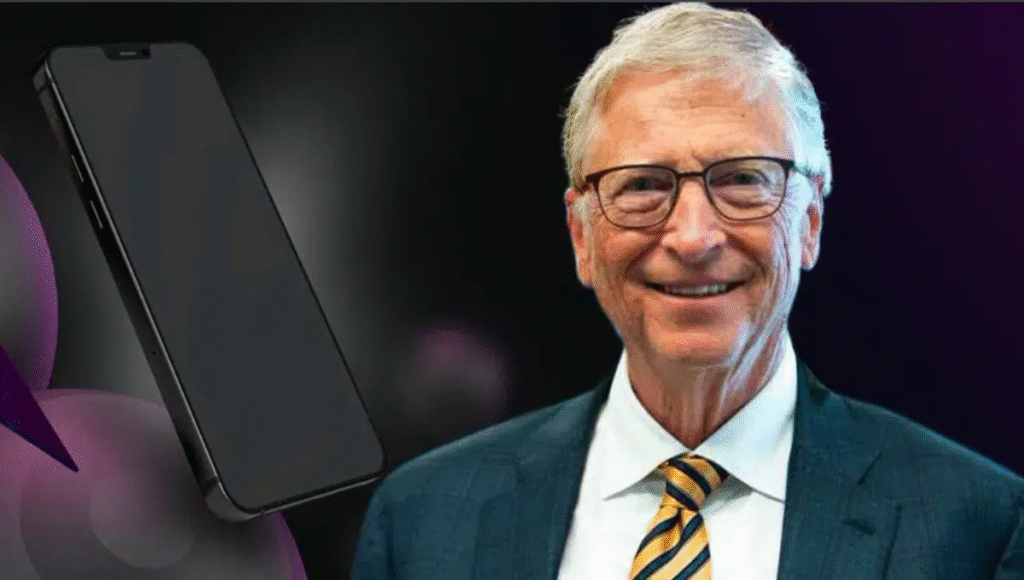
Bill Gates Predicts the End of Smartphones: Future of Phones Electronic Tattoos
Imagine a world where the smartphone in your pocket is no longer necessary, where digital connectivity is seamlessly embedded into your very skin. This is not a distant sci-fi fantasy, according to Bill Gates, who predicts that the age of handheld devices is coming to an end. Instead, he envisions a future dominated by electronic tattoos, innovative skin-based technology that could revolutionize the way we communicate, access information, and monitor our health.
For over a decade, smartphones have been indispensable. They have shaped how we connect, work, and interact with the world. From checking emails to scrolling social media feeds, these devices have become extensions of ourselves. Yet, Gates believes the era of the smartphone is fading, pointing to electronic tattoos as the next transformative leap in technology.
What Are Electronic Tattoos?
Electronic tattoos, originally developed by Chaotic Moon and later acquired by Accenture, are essentially skin-integrated devices that replace traditional screens and gadgets. Imagine temporary tattoos that act as mini computers on your skin, powered by nanocapacitors without the need for bulky batteries. These tattoos can communicate with nearby devices, allowing users to perform tasks with simple gestures, such as swiping on their arm to send a message, unlock a door, or browse the web.
Beyond connectivity, electronic tattoos offer a profound integration with personal health. They can continuously monitor vital signs like heart rate, body temperature, and other health metrics, potentially detecting issues before they become serious. In this sense, they combine the functions of a smartphone, a fitness tracker, and a health monitor into a single, invisible device.
A More Intuitive, Screen-Free Experience
Electronic tattoos promise an elegant and intuitive experience unlike anything we’ve seen before. Without the distraction of screens, users may find themselves more present in conversations, less glued to notifications, and more engaged in daily life. The ability to interact with the digital world through subtle gestures could simplify routines in ways that smartphones never could.
The potential for these tattoos extends to everyday convenience. They could replace passwords, credit cards, and physical keys, offering secure, biometrically authenticated alternatives. With unique identifiers embedded in the skin, these devices could provide enhanced security far beyond the capabilities of current smartphones.
Challenges and Ethical Concerns
Despite their promise, electronic tattoos come with serious questions. They collect highly sensitive data, including location, biometric information, and health statistics. Who owns this information, and how is it protected? Privacy and cybersecurity will be critical challenges, as hackers may attempt to exploit these deeply integrated devices. Ensuring that these innovations are safe, ethical, and accessible to everyone will be just as important as the technology itself.
Accessibility remains another major concern. If only certain groups can afford these tattoos, the digital divide could widen further. Policymakers, technologists, and society at large will need to work together to ensure that the benefits of this technology reach a broad audience without deepening inequality.
Transforming Health and Social Interaction
One of the most exciting prospects of electronic tattoos is their potential impact on health. Continuous monitoring of sleep patterns, heart rate, and other vital signs could provide unprecedented insights into personal wellness. Early detection of anomalies could save lives, while real-time health data could empower individuals to make informed decisions about their lifestyle and well-being.
Social interactions could also evolve in meaningful ways. With less reliance on handheld devices, people may engage more authentically with each other, experiencing deeper connections and fewer distractions. The convergence of technology, health, and social interaction in electronic tattoos could fundamentally reshape daily life.
The Future Is Closer Than We Think
Although electronic tattoos may sound like science fiction, their development is progressing rapidly, supported by innovators like Bill Gates. This futuristic technology has the potential to replace smartphones, simplify daily tasks, and enhance human capabilities in ways previously unimaginable. The notion of a device embedded in your skin may soon move from imagination to reality, offering a seamless bridge between the digital and physical worlds.
As we look toward a future without traditional smartphones, the question remains: how ready are we to embrace a world where our technology is literally part of us?
Disclaimer
This article is based on statements made by Bill Gates and reports on electronic tattoo technology. The technology discussed is under development and may not yet be commercially available. The content reflects current understanding and projections and is subject to change as the technology evolves.





